Creative Space Beirut School of Design is a tuition-free school for fashion. It is radically committed to diversity and inclusivity within its program and admits a small pool of students each year based on talent and determination alone. Here, we learn more from Sarah Hermez, one of the founders.
You co-founded Creative Space Beirut School of Design with your former Parsons professor Caroline Simonelli back in 2011. What have been the most significant milestones?
Since the school’s inception, we have been committed to providing intensive three-year fashion design programs, prioritizing individuals from vulnerable communities. In total, 67 students have been educated so far under the guidance of 42 instructors, and 320 individuals have participated in workshops, fashion shows and exhibitions. We have worked with more than 300 collaborators and volunteers. Over the years, our alumni have been able to carve out careers in fashion, launch internationally recognized and awarded brands and teach at various local institutions. Indeed, 16 Creative Space Beirut graduates are currently working in the industry, three of whom have won awards for their creations.
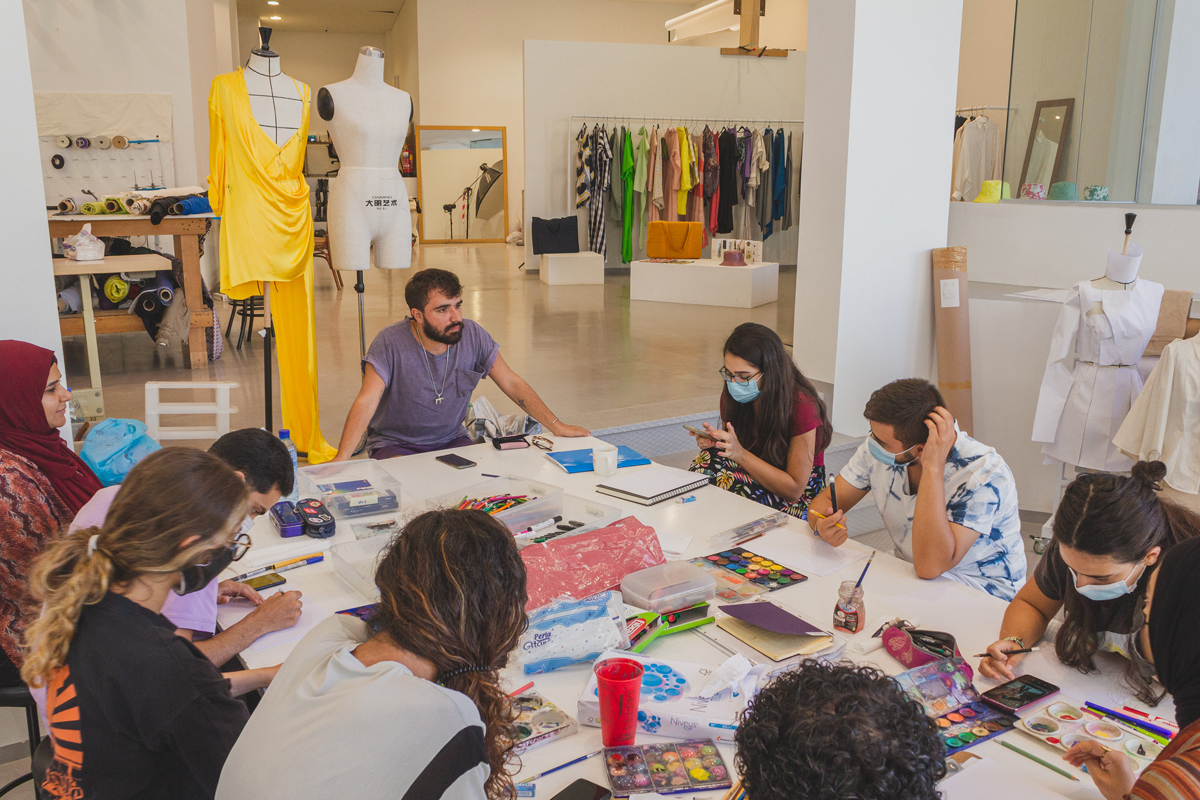
Students working (illustration course with Ahmed Amer)
How does Creative Space Beirut reflect the philosophy of its founders?
Creative Space Beirut was built on the belief that creativity should never be a privilege. From day one, our philosophy has been rooted in access, opportunity, and inclusion. We believe that talent exists everywhere, but opportunities do not, and that’s what drives us — to break down barriers and create a space where passionate, driven individuals can thrive regardless of their financial background. We envisioned a world where design could be a tool for empowerment, where students could shape their futures and contribute to a more equitable creative industry. This philosophy lives in everything we do — from offering free, high-quality education to fostering a community that values collaboration, sustainability and innovation.
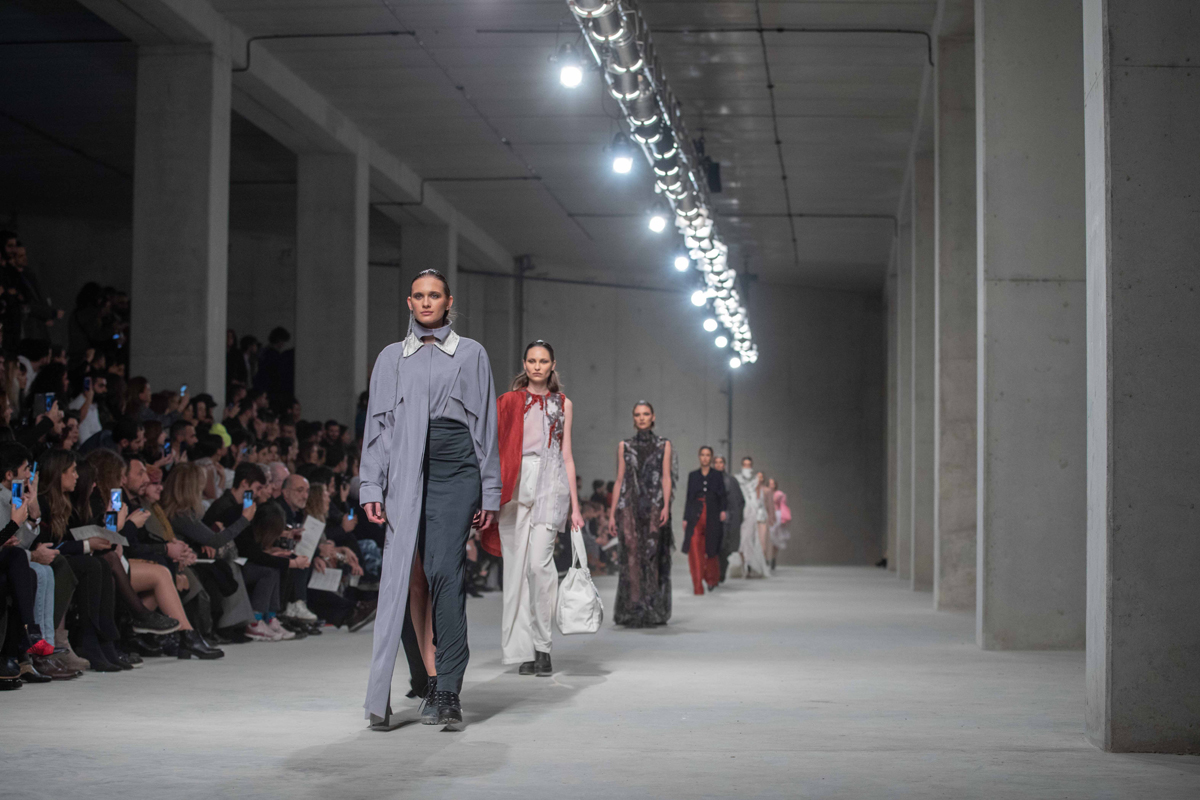
Fashion Show 2018 (photographer Carl Halal)
In your opinion, what makes this institution different?
Creative Space Beirut is different because it’s not just a school — it’s a movement. We’re redefining what fashion education looks like by making it completely free and accessible, something unheard of in a world where creative education is often reserved for the privileged few. What sets us apart is the way we integrate education with real-world experiences. Our students aren’t just learning in a classroom; they’re collaborating with industry professionals, working on live projects and building brands that have the potential to shape the future of fashion. More than that, our commitment goes beyond graduation — we continue to support our alumni through mentorship, career opportunities and platforms to showcase their work.
 What are the greatest challenges in running a free fashion design school in Lebanon?
What are the greatest challenges in running a free fashion design school in Lebanon?
Running a free fashion school in Lebanon comes with a unique set of challenges. Sustainability is always at the forefront, as we rely entirely on donations, partnerships and our revenue-generating initiatives to keep the school running. In a country facing economic instability, securing consistent funding is a constant challenge. Beyond finances, we also navigate challenges in accessing materials and resources, dealing with power shortages and ensuring that our students receive exposure to international opportunities despite travel and visa restrictions. However, despite these obstacles, we remain committed to pushing forward. Our resilience is part of what makes Creative Space Beirut so special.
 What does 2025 hold for Creative Space Beirut and its students?
What does 2025 hold for Creative Space Beirut and its students?
It’s going to be a big year for Creative Space Beirut. We’re focusing on expanding our impact, strengthening our curriculum and creating more opportunities for our students and alumni. We want to further integrate sustainability into our design processes, forge new partnerships with global industry leaders and increase visibility for our students’ work both locally and internationally. Most importantly, 2025 is about empowering our students to take the lead in shaping their own creative futures.
 How can people support the Creative Space Beirut family?
How can people support the Creative Space Beirut family?
There are so many ways to support Creative Space Beirut, whether it’s by donating, collaborating or simply spreading the word. Financial contributions go directly toward keeping our programs free and accessible, ensuring that our students have everything they need to succeed. Collaborations with brands and organizations help us provide students with valuable real-world experiences and exposure. And even sharing our story helps amplify our mission and reach more people who believe in accessible education and sustainable fashion.
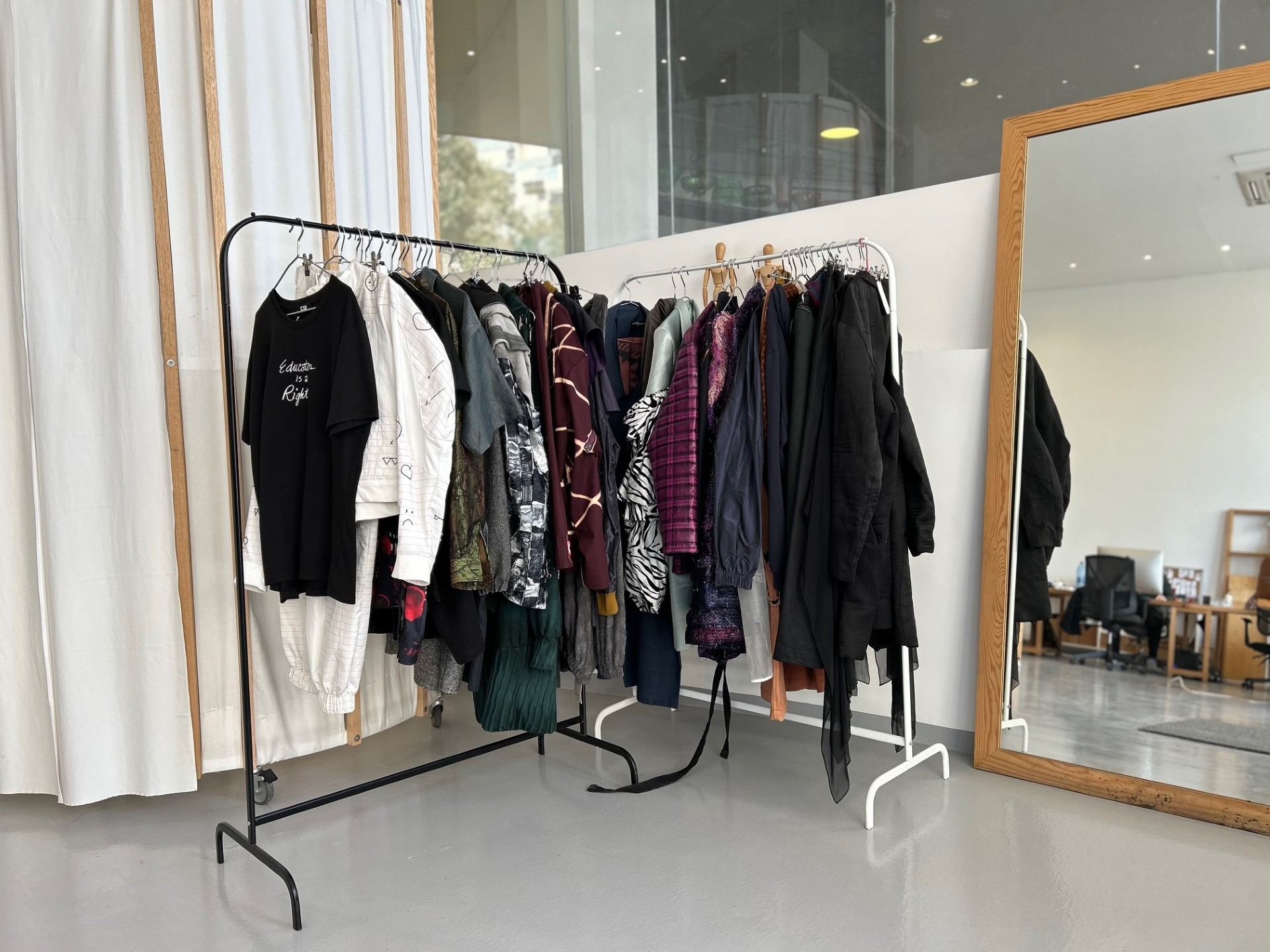
Every bit of support, no matter how big or small, helps us continue this journey and make a lasting impact.
———————————————————————————————–
A selection of alumni success stories
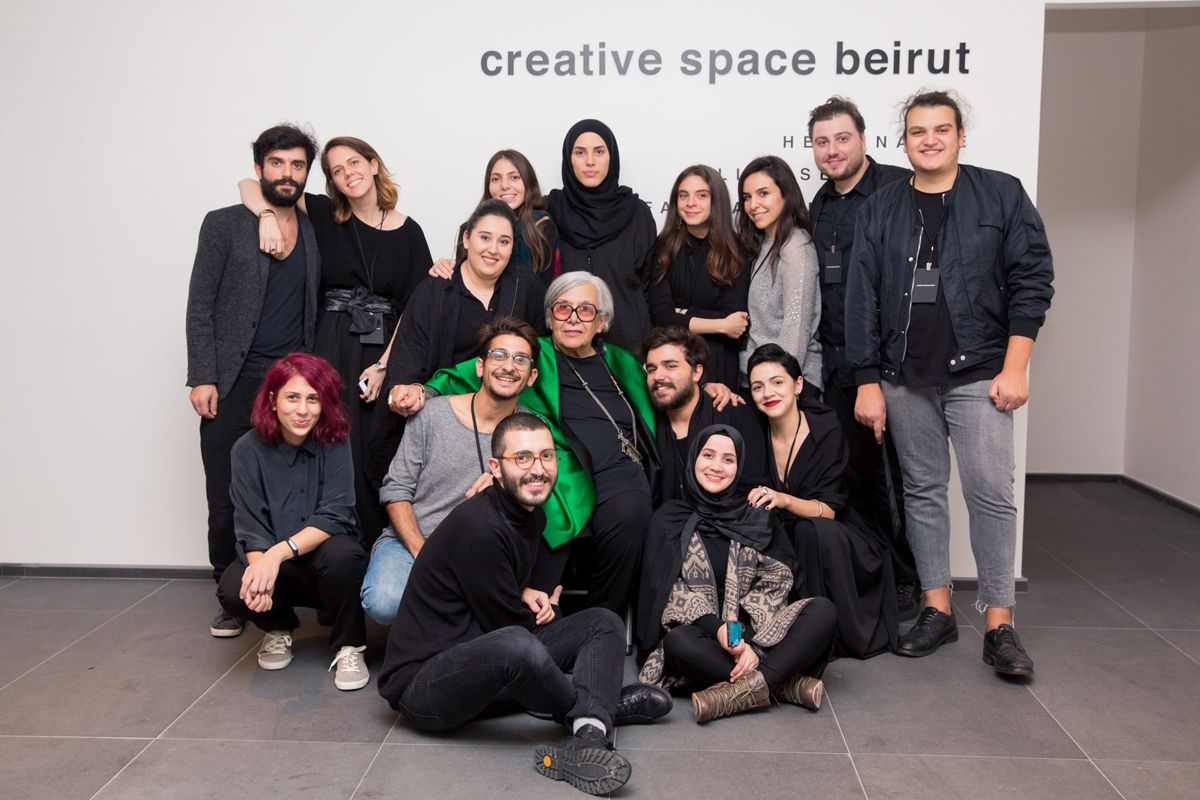
Group photo
Roni Helou – Class of 2016
Upon graduating, Roni Helou was accepted into Starch Foundation, a platform established by Tala Hajjar and Rabih Keyrouz to support up-and-coming designers. He was accepted by the International Fashion Showcase as the only Arab designer for its 2019 edition, a residency culminating in a group installation at Somerset House, London. In 2019, Roni won Fashion Trust Arabia’s inaugural ready-to-wear prize, which was used as substantial starting capital to launch the designer’s own eco-friendly, ready-to-wear brand. Currently, Roni is working in Qatar as a fashion consultant and mentor of Qatari-based brands while continuing to produce in Lebanon.
Heba Nahle – Class of 2016
Upon graduating, Heba Nahle was awarded a scholarship to attend the Polytechnic University of Milan to pursue a master’s degree, which she recently completed. She presented her thesis on formal protective attire for urban motorcyclists. She continues to live in Milan, having successfully planted herself in the industry. Heba has done research and design projects with sportswear brands such as Studio Maurizia Botti and has worked on the design and execution of artificial robot skin with Istituto Italiano di Tecnologia. Heba continues to work as a freelance designer and consultant.
Aline Seukunian – Class of 2016
After graduating from Creative Space BeiruT, Aline Seukunian pursued a career in production, collaborating with various brands on fabric research, manipulation, and production management. She previously taught at the Lebanese American University’s Fashion Design program and Fabric Aid’s Tailoring School, and now serves as an instructor at Creative Space Beirut.
Hazem Kais – Class of 2017
Throughout the three years Hazem Kais spent at Creative Space Beirut, he demonstrated his sensibilities toward nature and organic processes. Upon graduation, he was hired by Sawa For Development & Aid — a Lebanese-registered grassroots organization working with Syrian refugees in the Bekaa Valley — to design the program and led the team through developing their craft. The collaboration resulted in The Master Peace, an ongoing brand of clothing and furniture. In 2019, he established his own brand, Goodkill, and was invited to launch his collection in a fashion show during Fashion Forward Dubai under the umbrella of Creative Space Beirut. He continues to evolve his brand, which focuses on textile creation and fabric manipulation in versatile products.
Ahmed Amer – Class of 2017
After graduating from Creative Space Beirut, Ahmed Amer partook in diverse collaborations. He launched his eponymous brand in 2018, which gained a reputation in the industry through its artful integration of his iconoclastic line drawings with bold, yet organic apparel design. Ahmed is an avid illustrator and does live illustration performances. He teaches Design Through Sketching and Fashion Illustration at Acadeěmie Libanaise Des Beaux-Arts (ALBA).
Ibrahim Fakhereldeen – Class of 2018
Stylist Ibrahim has gone on to build an illustrious career as a stylist. From cinema to celebrities and personal styling, Ibrahim’s work can be seen on his Instagram profile: styledbyibra.
Amir Al Kasm – Class of 2019
Amir began his journey at Creative Space Beirut at the age of 16, after fleeing from Talkalakh, Syria, at the height of the Syrian Civil War. Dedicated, helpful, curious and hardworking, he excelled in all aspects of his education. His professionalism, strong ethics and punctuality made him stand out and prove his talent to his peers and instructors. Thanks to his impeccable work and attention to detail, Amir was offered the position of assistant designer at Krikor Jabotian, a famed Lebanese-Armenian fashion designer. Amir continues to work with private clients to design custom-made dresses.
Ahmad Abdullatif – Class of 2019
After graduating, Ahmad collaborated with Creative Space Beirut on special edition collections while gaining experience in production management, inventory, and post-production reporting. He later worked as a production manager at Glow Beirut, overseeing design, production, marketing and e-commerce. Ahmad also worked with Creative Space Beirut alumnus Roni Helou, specializing in fabric research, manipulation and production management. Today, he focuses on his eponymous brand, Ahmad Abdullatif, where he continues to explore innovative fabric techniques and create his own mini collections.
If you enjoyed reading this, check out our interview with fashion designer Nemer Saade.
Loading


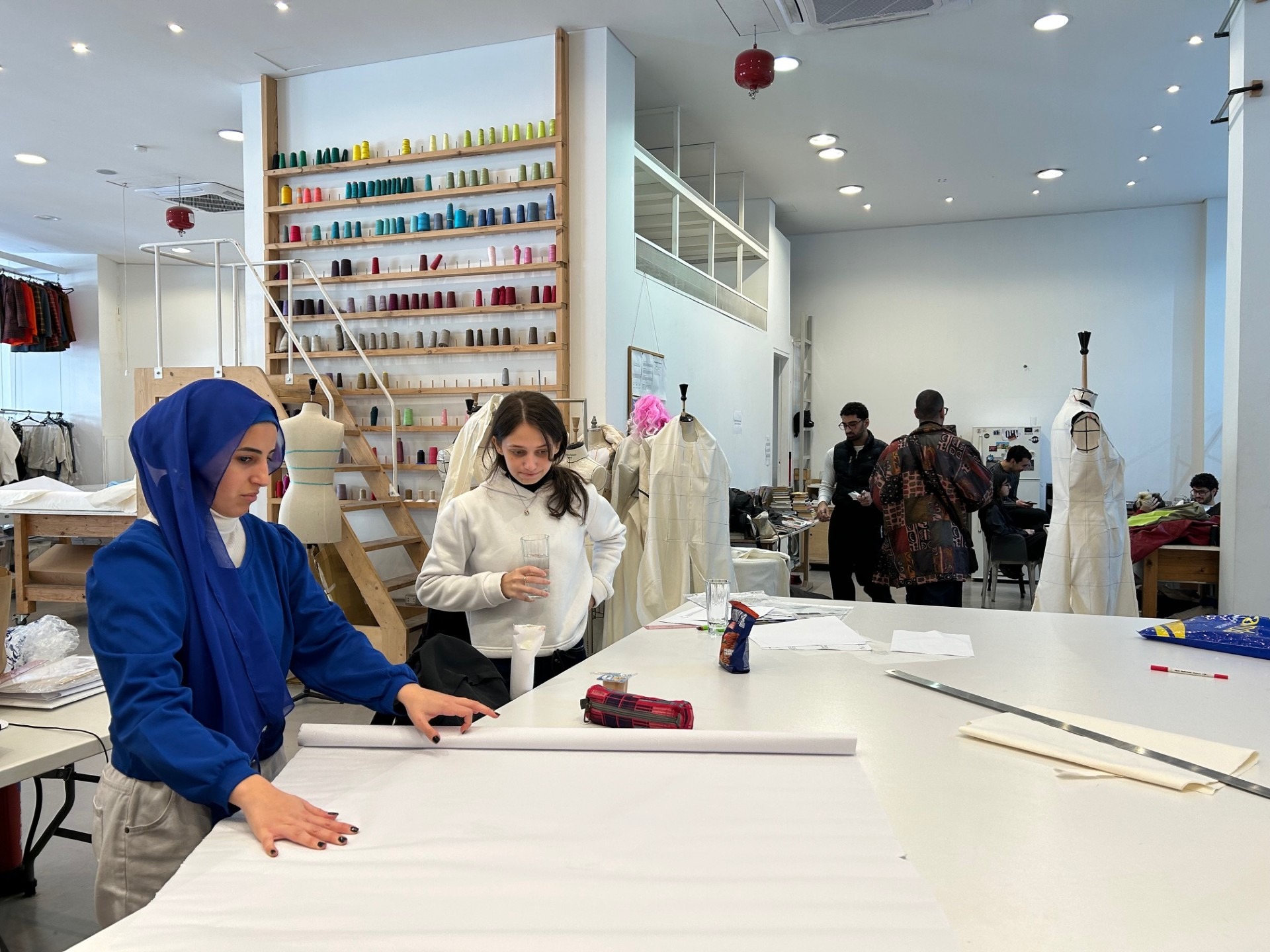 What are the greatest challenges in running a free fashion design school in Lebanon?
What are the greatest challenges in running a free fashion design school in Lebanon?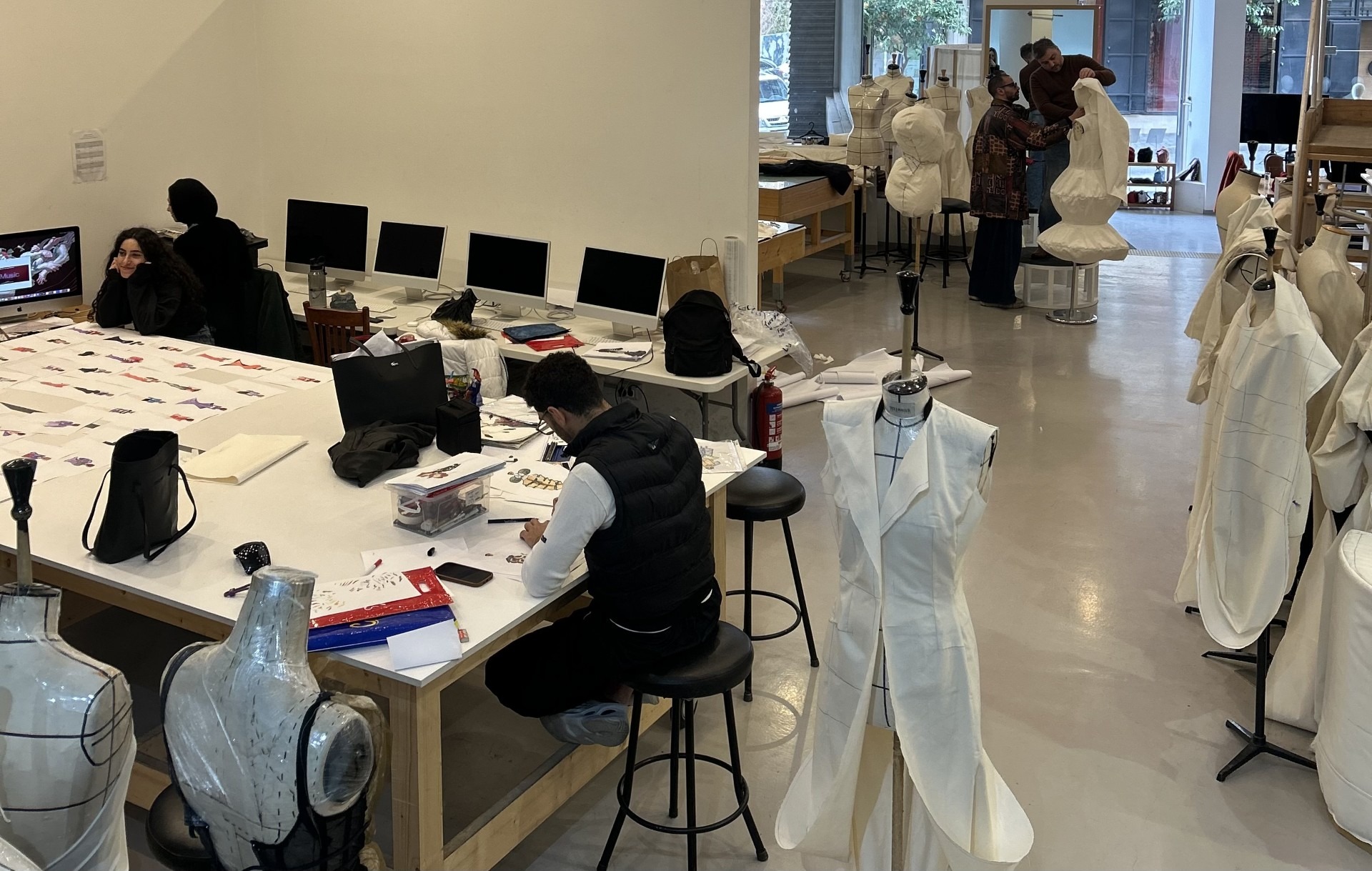 What does 2025 hold for Creative Space Beirut and its students?
What does 2025 hold for Creative Space Beirut and its students?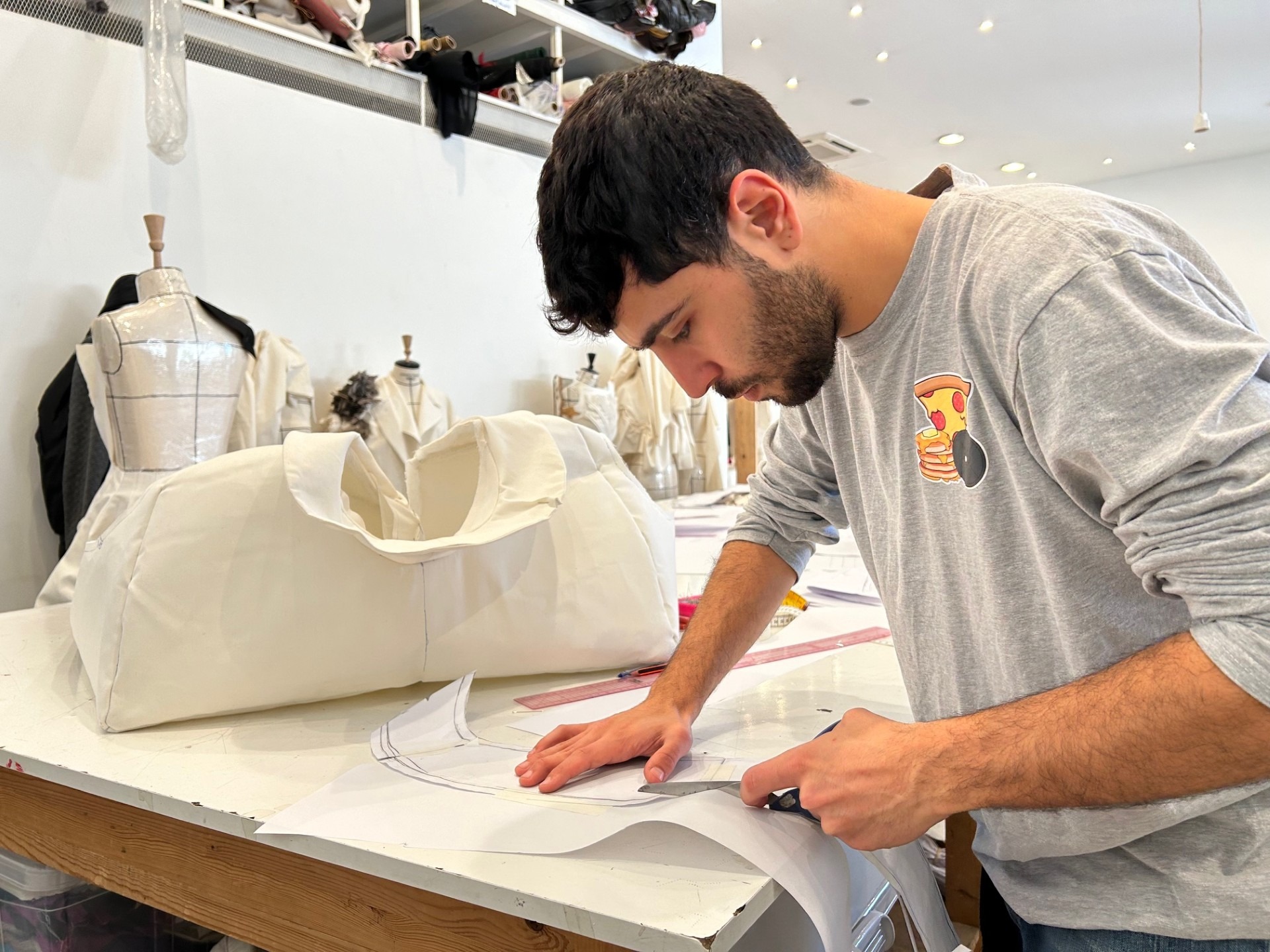 How can people support the Creative Space Beirut family?
How can people support the Creative Space Beirut family?